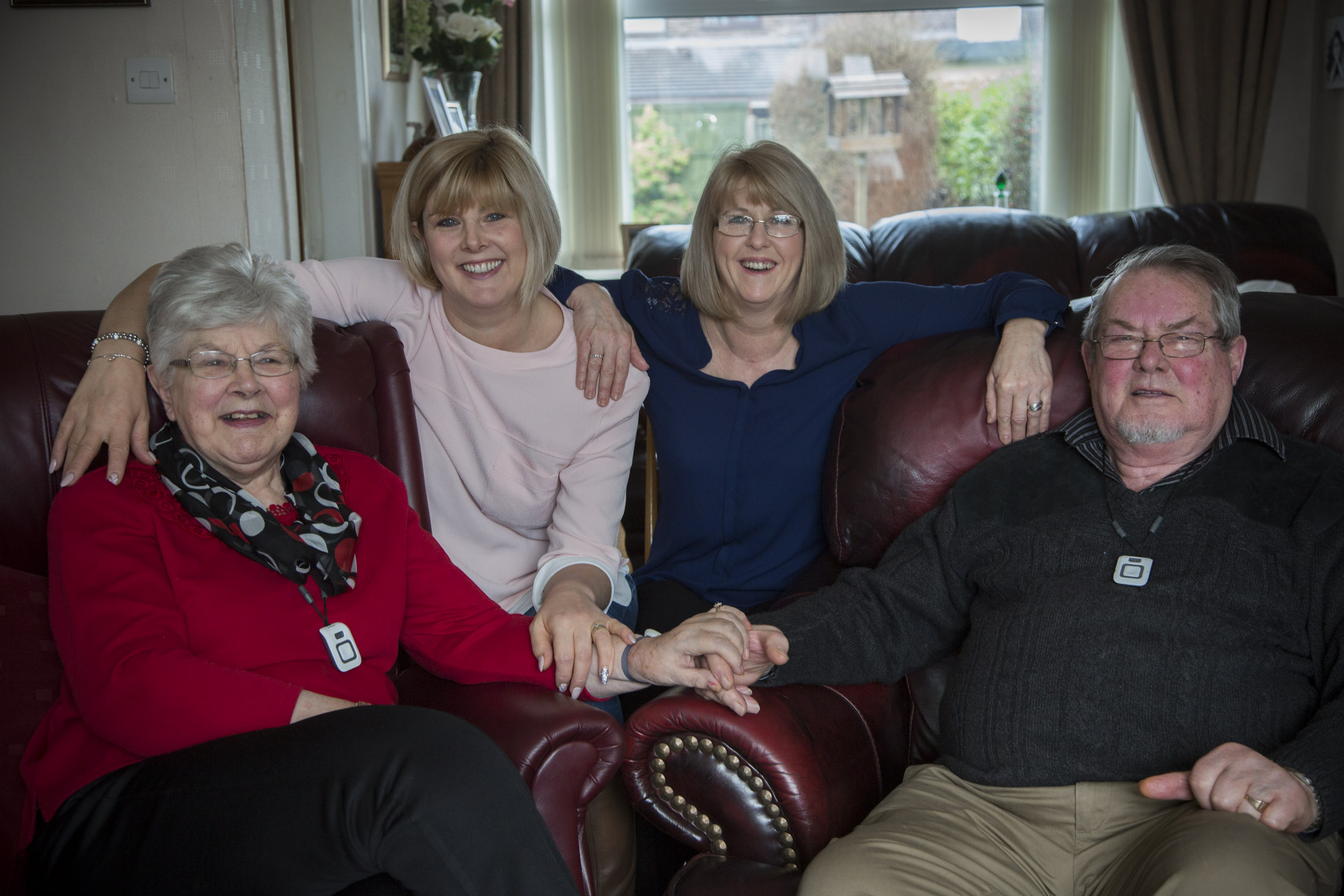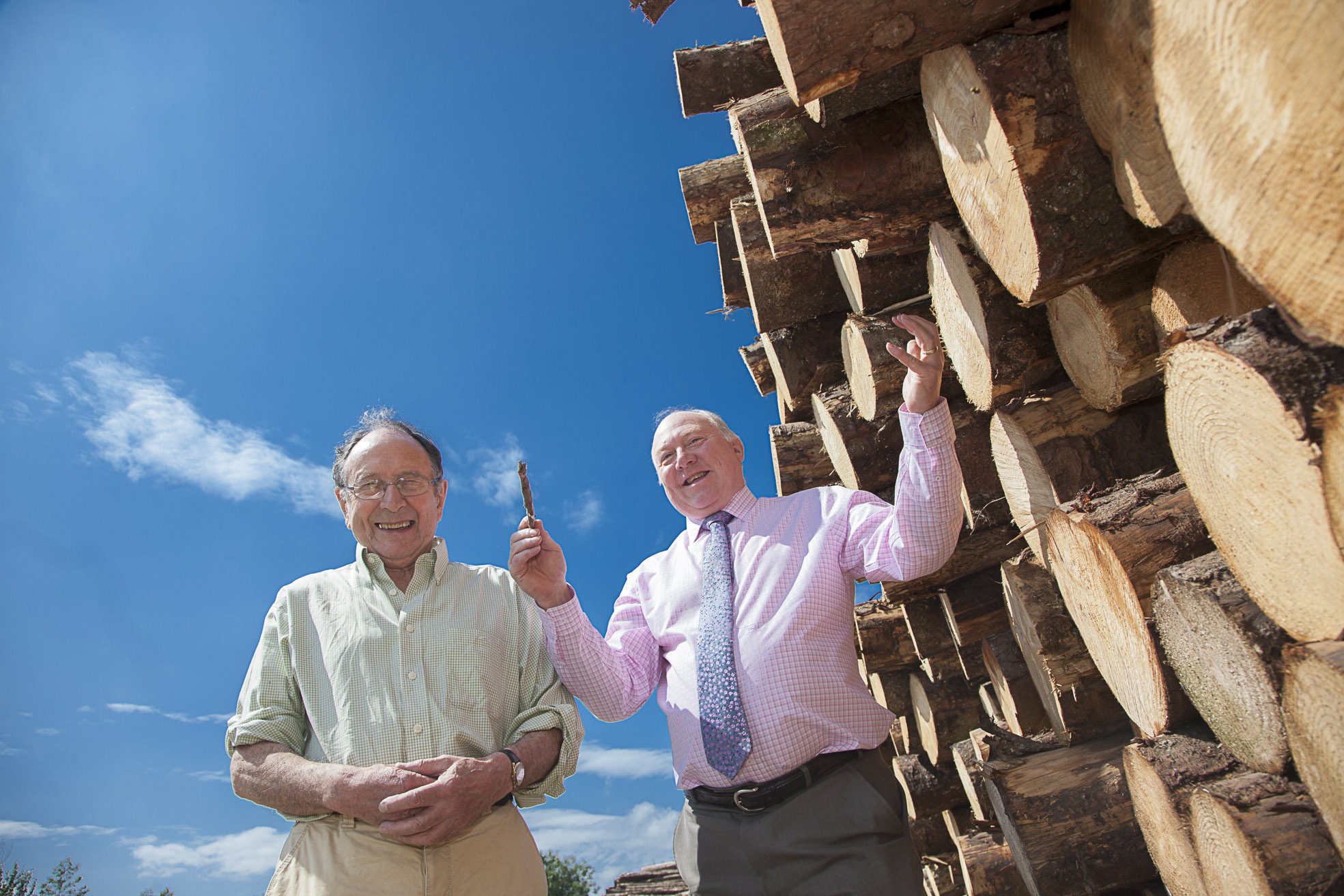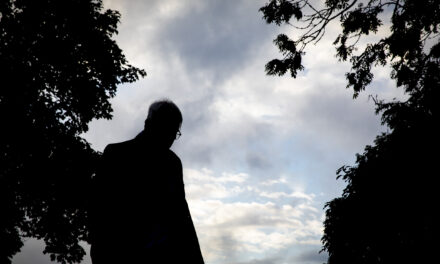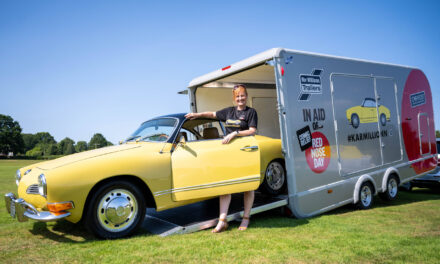The family of a former model diagnosed with dementia has welcomed a new initiative to support those living with the condition.
The Dementia Support Service, run in partnership between Betsi Cadwaladr University Health Board (BCUHB) and the Carers Trust North Wales Crossroads Care Services, offers practical and emotional assistance to people across North Wales.
It provides guidance on issues linked to a diagnosis of dementia, including advice on planning for the future, how to access social activities, community groups and dementia cafes, and sources of free training and educational resources.
The service is available to any patient, carer or family member affected by a new diagnosis of dementia from BCUHB’s Memory Assessment Services.
Among those who have benefited from the service are Brian and Denise Felgate from Smithy Lane, Wrexham, who say they found it invaluable in accessing the care they need to continue living independently at home.
Denise, a former model and buyer with High Street retail chain C&A in her younger days and more lately a sought-after cake decorator, has been diagnosed with vascular dementia and heart problems. Her husband Brian, who worked as a supervisor at Firestone for 27 years before running market stalls in Wrexham, Anglesey, Blaenau Ffestiniog, and Ellesmere Port, is blind in one eye with very limited vision in the other.
The couple, both aged 84, have been fully supported by their family – children, Paul, Clive, Lynn, Sue, Ian and Claire, plus their 13 grandchildren and 12 great-grandchildren. But they admitted they didn’t know how or where to access the professional help they needed until they heard about the Dementia Support Service.
Service co-ordinator Karen Rowley who works with Carers Trust North Wales Crossroads Care Services, which is delivering the service, was drafted in to help Brian and Denise.
Karen has tackled issues including securing the level of care appropriate to their needs, home safety improvements, obtaining specialist equipment, and liaising with professional care givers and clinicians.
Brian said: “Until Denise was diagnosed with dementia we have never had a need to ask anyone for help. We have always been fiercely independent and just got along with our lives as best we could, buying anything we needed if we could afford it and going without if we couldn’t.
“As the symptoms of the dementia became more serious and with my eyesight increasingly failing, we began to realise we couldn’t just do that anymore. We needed help, but we knew nothing about the type of facilities that are available or who were the right people to approach.
“When we were introduced to Karen it was a huge relief to have someone else to help shoulder the burden and guide us through the maze of bureaucracy.
“I don’t know where we would have been today, without Karen’s help. She has been a true lifeline to us, armed with all the information and advice we needed at a period when we were really struggling.”
The couple are now encouraging others living with dementia to take full advantage of the service, which will be holding a series of events in the coming months.
Their daughter Claire Felgate Davies, 47, who lives nearby in Garden Village, said: “We’re a big family and everyone does what they can to help Mum and Dad, but even so we were very much at a loss about how to proceed when Mum’s dementia took hold.
“It’s not something you really think about having to deal with until it happens to your family. So we were extremely grateful when Karen came along, offering all the necessary information and advice. She arrived at just the right time, when things were getting quite complicated in terms of the level of care we needed.
“Mum and Dad are keen to continue living in their own home and we all wanted to help them with that. But at the same time our concerns were growing about their safety. Karen came up with some solutions which have helped them retain their independence, but also receive the help they so urgently needed.
“She quickly resolved important issues in terms of the timing of mum’s daily carer visits and she introduced us to a number of other organisations and dementia professionals.”
Patients are referred to the support service via memory clinics across North Wales, which work with newly diagnosed dementia patients, said Mark Jenkinson, Interim Locality Manager for Older People’s Mental Health.
A co-ordinator is assigned to each client and works in partnership with them and their families to provide vital information, financial advice, home visits, develop an action plan for the future, and work to prevent any crises
Mark added: “The new service is available to offer support to anyone that has received a diagnosis of dementia from our Memory Assessment Services.
“The new dementia support workers are employed by the Carers Trust (Crossroads) and are working very closely with the co-ordinators and the Health Board’s Memory Service Teams throughout North Wales.
“The service is one of a number of initiatives from the Health Board to support people diagnosed with dementia.
“We are also in the process of developing an app to support people who have dementia and Alzheimers in travelling to and attending hospital appointments.”
Karen said in the few months since its launch, the service has already made a huge difference to patients and their families.
She said: “I know from personal experience how desperately a facility like this has been needed. My parents suffer from dementia and I wish this level of support had been available when they were first diagnosed.
“It’s an extremely traumatic and worrying time for patients and their families when they first receive the news that a loved one is suffering with dementia or Alzheimer’s Disease. Many just don’t know where to turn for support and are unaware of the wide range of help that’s available to them. That’s where we come in.
“We can signpost them in the direction of important organisations who can assist, whether it be financially, practically or emotionally. We work across the full spectrum of needs and closely liaise with all the relevant authorities in the dementia field.
“Although Brian and Denise had carers coming in daily when we met, there were a few issues about the timings of the visits, which I quickly sorted out. I also linked them up with a number of dementia help organisations and social groups.
“It can be an emotional boon for people to meet up with others and realise they are not alone in these situations.
“I point people in the direction of care organisations who can assist with mobility, bathing and personal hygiene issues, meals and home help. We also advise on grant applications and link up with financial assistance providers, local authority social services and health workers, and more generic groups like the CAB.
“Plus we can help tackle practical challenges in the home, some of which might at first seem quite simplistic but can make a big difference to a person’s day to day routine. For instance, I am in the process of arranging for Brian to receive a tipping kettle which automatically pours directly into a cup.”
The Dementia Support Workers Service is setting up and hosting monthly peer support groups and pop-up community based cafes for clients and their families to meet socially, listen to guest speakers and get information and advice on social activities, wider support networks, respite care, and local community events.
Alison Jones, CEO of Carers Trust North Wales Crossroads Care Services said: “We are very pleased to be working on this new and exciting initiative with BCUHB offering support to people with dementia and their carers and families.
“It is important to us that everyone will feel supported on their journey with dementia.”
For further information about the Dementia Support Workers Service call 01492 542212 or visit www.nwcrossroads.org.uk










